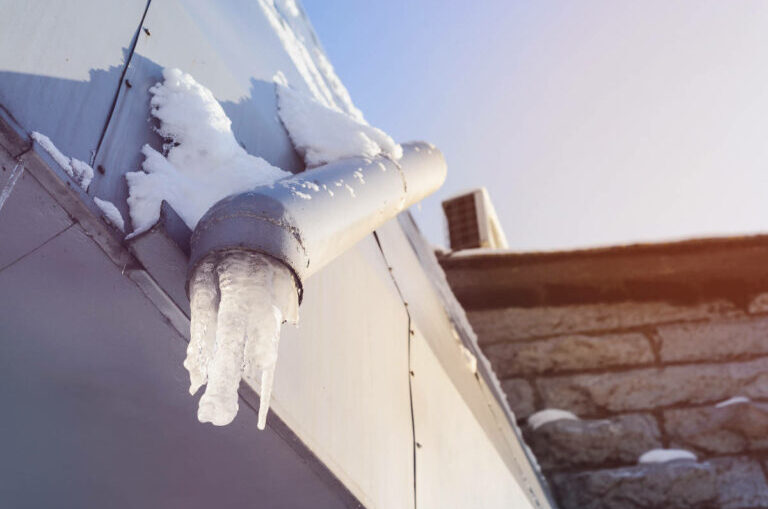
Under typical circumstances where a house is designed and constructed properly, water should not freeze in the pipes as there are several steps taken to prevent the issue before it can happen. Pipes that are closer to the outside walls, or in areas more exposed to the outside weather such as attics or crawl spaces, are usually insulated to prevent drastic temperate changes. Be sure to check on the insulation to make sure it is present and in good repair; if not, the first step should be to reapply any worn or stripped material.
Depending on how your home is designed and the devices you have connected to your water pipes, there are some other steps to take to prevent frozen pipes from becoming a reality. If you expect to be away from your home for an extended period of time during winter, disconnecting outside hoses such as garden hoses is a must. Be sure to drain the extra water from the hoses as well as the pipes, and if possible, shut off the water valve to prevent any unnecessary water from building up in the pipes. To do this, simply shut off the water main and run all the faucets in the home until no water comes out.
In addition to insulating pipes, certain other steps may be needed to minimize the impact of exposed pipes. While most plumbing in a home can be insulated or located in areas where warmer air circulates, there are specific places where this may not be possible. One (very costly) solution, if you live in a colder region where freezing is usual, is to have a plumber redo the layout entirely and reroute any problematic piping to warmer parts of a home. Since this usually is not too practical, another idea would be to ensure that insulation is applied not only to the pipe but also to the area protected from gaps where cold air can leak through caulking. Even the smallest of holes and cracks can significantly lower the air temperature in an area over time.
One last resort is to leave a very small amount of water running over an extended time. While this does not directly help keep water from freezing, it can relieve pressure from the pipes in the event ice begins to form. With constant water flow, even if it is a small amount, the pressure release can delay or even prevent an inevitable burst pipe when ice build-up makes it difficult for existing water to move. This should only be used on pipes that are exposed, as it wastes water and is not necessary on insulated pipes that will not be prone to freezing water.
If water does freeze and cause ice build-up, the flow within the pipes will become backed up to the point where water pressure will cause the weakest portion of the pipe to burst. Once this happens, time becomes the most important factor in the equation. If you are at the residence and able to address the problem, make sure to shut off the water source first and foremost. In any water damage emergency, mitigating the leak will help prevent damage from spreading and should always be done once the inhabitants’ safety is secured. From there on, leave the tap open and contact your local water damage professionals to assess the situation accurately. Trying to fix the situation yourself can potentially cause more problems.
As you can see, even though freezing may not be as serious of an issue as in countries further north than the UK, there are still many possible ways that winter weather can cause problems for your home if it is not properly safeguarded. Make sure to take some of the steps described above and you can be sure that your home will be largely protected from the elements. For more extensive measures, in the event that you live in a much colder part of the UK such as Scotland, make sure to speak with a certified plumber to get the best idea of what would be required to protect your pipes.
